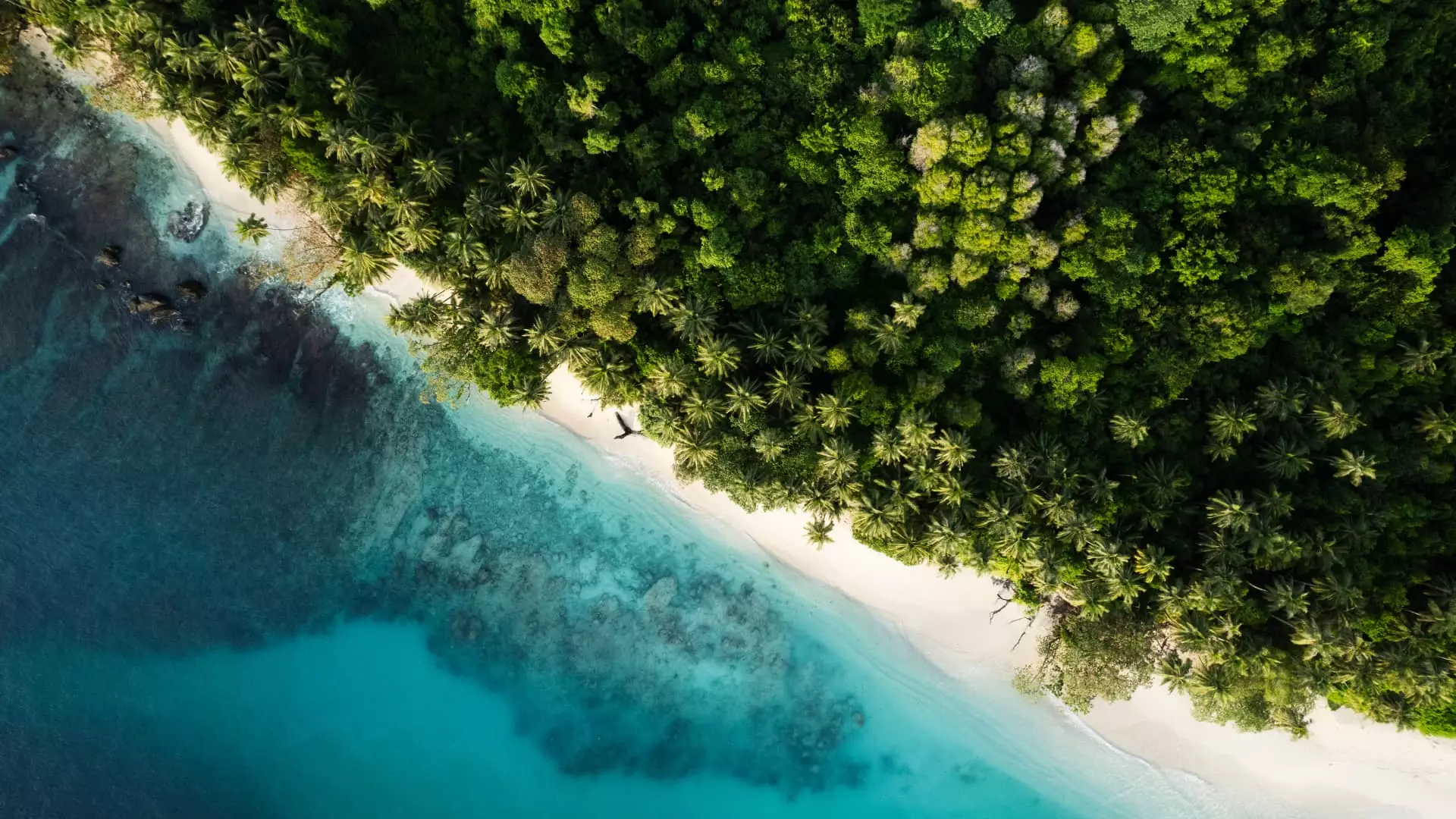Four years ago, Richard Kvech and his friends from the Czech Republic stumbled upon Pinang Island, a remote and unspoiled piece of land in Indonesia. At the time, the island was little more than a dilapidated fisherman’s bungalow and an untouched jungle. The fledgling group, consisting of Kvech, Tomas Ouhel, photographer Stephan Kotas, and fertility clinic co-owner Martin Mrazek, envisioned an eco-retreat that would allow visitors to reconnect with nature while keeping environmental integrity intact. Their journey has not just been about creating a getaway; it has been a profound engagement with the land, its natural resources, and the local community.
In the beginning, Kvech and his friends found themselves living off the land, cooking on the beach, and sleeping in hammocks. After rigorous discussions with the island’s owners, they secured a 50-year lease to develop the land. Utilizing sustainable building practices, they erected a guest bungalow and essential facilities powered by solar panels, showcasing a commitment to sustainability and an innovative approach to eco-tourism.
The meticulous construction of the eco-resort marked a significant development for Pinang Island. With their own finances as the main source of support, the group employed locally sourced materials to set up accommodations while ensuring that all structures converged harmoniously with the natural landscape. The accommodations comprise of guest bungalows that can accommodate 12 guests, equipped with bathrooms attached to larger units and a shared system for smaller bungalows.
The commitment to sustainability is further illustrated through the establishment of a garden based on permaculture principles. This approach not only allows them to harvest fresh fruits and vegetables but also maintains biodiversity, providing a vital habitat for local wildlife. Additionally, they embarked on a composting initiative for organic waste and established recycling practices for glass and metals, thus reducing the footprint of their operations.
Two years after welcoming their first guests, the satisfaction derived from this venture has blossomed into a niche destination that attracts yoga enthusiasts, surfers, and those seeking tranquility away from urban life. The rate for an all-inclusive stay is reasonable considering the location, catering specifically to small groups eager to experience the island’s raw beauty.
While the allure of Pinang Island is undeniable, visitors should be cognizant of the challenges they may face. The journey to this secluded retreat is arduous; it involves numerous flights and a potentially treacherous boat ride. The recent harrowing incident involving a capsized fishing boat had drawn attention to safety concerns in the region, highlighting the unpredictable nature of ocean travel.
In the wake of this tragedy, Kvech’s team has taken commendable steps to enhance safety for guests. They have invested in a durable fiberglass boat equipped with advanced navigation and communication technology, ensuring that future trips to the island can be conducted with greater safety and assurance. Furthermore, the establishment of the Fifan Foundation aims to improve safety training for local boat captains, demonstrating a positive, community-focused response to a tragic event.
A Unique Experience for Every Adventurer
Pinang Island is designed for those yearning for a profound connection with nature. The resort does not cater to the conventional traveler seeking luxury; instead, it invites “adventurous souls” who value eco-tourism and are prepared to embrace a simpler lifestyle surrounded by nature. Kvech emphasizes that the resort’s capacity will remain intimate, believing that larger operations would compromise both environmental health and the quality of guest experiences.
Living full-time on an island is not without its challenges. Kvech has candidly shared that the experience often contrasts with the idyllic fantasy people may associate with island living. He faces bureaucratic complexities, cultural nuances, and the intricacies of managing an eco-resort in a remote location. Such challenges reveal the realities behind the façade of paradise, fostering a deep respect for both the environment and the local culture he strives to honor.
As Kvech divides his time between Pinang Island and the Czech Republic, he is keenly aware of the opportunity to curate a space that champions sustainability, while still catering to those seeking relaxation and adventure. He reflects on the journey so far with hope, firmly believing that the eco-retreat can continue to flourish without compromising the island’s pristine nature.
Ultimately, the vision for Pinang Island goes beyond mere tourism; it encapsulates a holistic approach to conservation, community engagement, and personal transformation. As this unique destination evolves, it stands as a testament to what can be achieved when passion and purpose align, creating a sanctuary for both nature and human rejuvenation.

